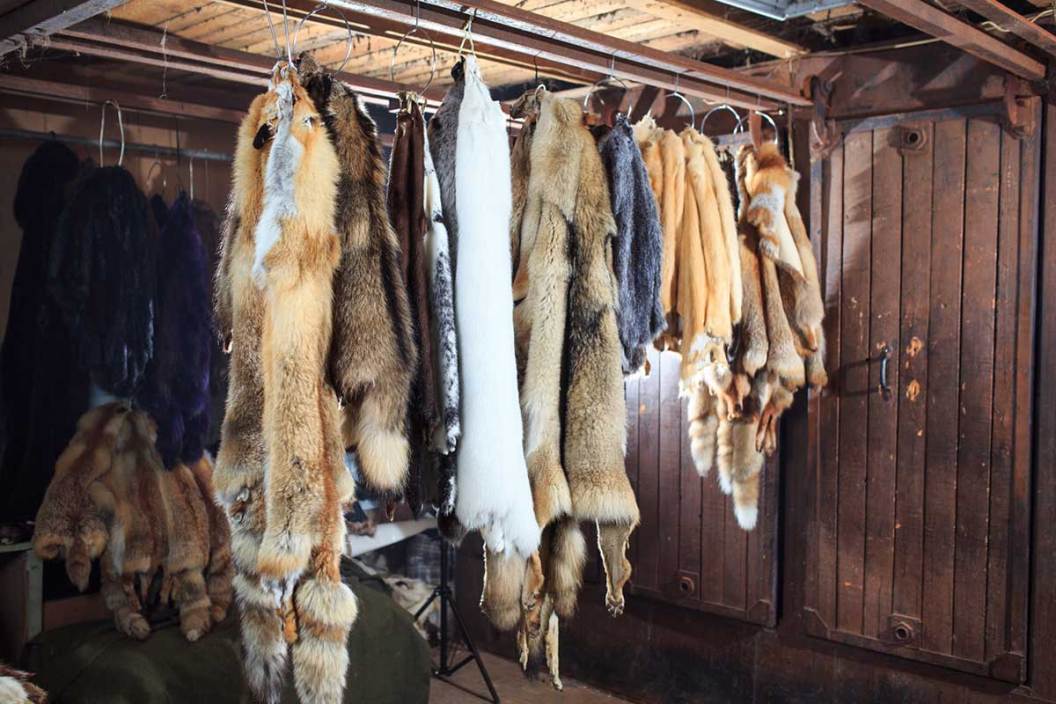It may not be the first thing that comes to mind, but we think women would consider fur trapping as an outdoor recreational activity if they knew the benefits.
Ask a seasoned trapper why they keep running a line despite a measly fur market and you'll turn up a lot of answers - that feeling of being out on a crisp autumn morning, the challenge of tricky furbearers, or the general love of the outdoors.
But what if developing the skills that are crucial to fur trapping, reading the signs, anticipating animal movement, adjusting to weather shifts, and more, was done for a different motivation?
What if women in particular turned to trapping as a means of self-sufficiency in the event of a societal catastrophe?
Survival trapping
It might seem like a doomsday scenario, but society is always one big disaster away from imploding. Be it natural disasters such as tornadoes, hurricanes, floods, blizzards, or earthquakes, or human-induced disasters like a power grid failure or the fall of civilized government, there are plenty of situations where people would have to learn to fend for themselves after supplies run out.
It is not a solid plan to rely on the chain of communication after a disaster. If cell service is down there might be no way to contact the outside world. It is vitally important to have a technique in place for securing food once the pre-disaster methods have broken down.
For perspective, we spoke with someone well-versed in trapping and learned even more about the advantages of trapping. Linda White, president of the female-focused gear shop Trapping Girl, Inc., co-owner of Sawmill Creek Bait and Lures, and founder of Kids For Catches, was born a self-proclaimed "city girl" and said it was not until she was exposed to trapping that she stopped to consider what skills she possessed that would save her in the event of a disaster.
"I grew up watching the world change to where you can have everything at the touch of a button," White said. "I enjoyed fishing but I was not what you would call an outdoorsy kid. As an adult that didn't really change until I met my husband. I realized how many survival skills he had that I didn't."
She set out to change that, first by carefully observing and recording information, and then by developing the hands-on skills that she needed to become a successful fur trapper.
"I hate to sound like a conspiracy theorist, but with the way the world is changing I feel like these skills are more important now than ever," White said. "Who knows what may happen and if we might one day rely on those skills again for survival? From food, to shelter, to clothing; these skills can provide so much for daily living. With so many split families and independent women out there I feel it is equally important for women, not just men, to learn these skills and pass them along to their children."
Trapping is just one of the many useful skills that can transfer over from fun hobby to food-procuring lifeline. Hunting and fishing could work well, too, but trapping is a more passive process. Ideally, a combination of the three would be enough to secure plenty of food until the effects of the disaster have passed.
What to Trap
Survival trapping is ideal for harvesting smaller game (think muskrat, beaver, rabbit, squirrel, etc.) between the stretches of hunting for larger game, like deer. Survival trapping could even be done in the winter months where foraged food such as berries or vegetables were unavailable.
Trapping can be executed in all conditions virtually anywhere, as long as there are animals in the area (be sure to check area regulations if there's no emergency situation).
The small animals that can be trapped, like squirrels or rabbits, might not sound the most sustaining or appealing now, but that would likely change after days of limited food. In this predicament survival would take precedence over palate.
Learning to trap animals requires the knowledge of travel patterns, species-specific animal behavior, plus the skillset to actually set up traps and stage the immediate area around it. Beyond those hard skills, fur trapping develops many important soft skills, such as grit, patience, endurance, and confidence.
Those qualities might be make or break your chances of sticking it out in a disaster. Becoming a trapper would almost certainly strengthen them. It's about developing practical skills and knowledge so you're prepared no matter what. That, above most other reasons, is why women should definitely consider trapping as an outdoor pursuit.
NEXT: FISH SPECIES CAUGHT WHILE ICE FISHING: TOP 3 MOST COMMON




